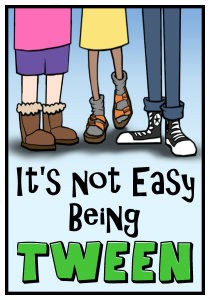Job Interview Tips Tailored for Teachers
A MiddleWeb Blog
 This time of year, many new teacher candidates are graduating and are excited to enter the profession. The one thing they all have in common: they want to nail their job interview.
This time of year, many new teacher candidates are graduating and are excited to enter the profession. The one thing they all have in common: they want to nail their job interview.
Because teaching is not quite like having a job in any other field, teaching interviews have their own unique “personality.”
As someone who has relocated often due to my husband’s profession, I have had more than my share of interviews, and I’m happy to say that I’ve been able to land a great job each time. I have also had the privilege of sitting on hiring committees, so I have a good feel for what administrators and teachers are looking for in a potential new colleague.
Below, I share some tips that will help you put your best foot forward when looking for a teaching job – whether you’re a brand-new teacher or a teacher moving into a brand-new situation.
What School Leaders Are Looking For
First and foremost, administrators tend to have a fairly consistent set of characteristics they are searching for in their teachers. Among these are:
- Someone with a passion for teaching and children
This will show through in the way you talk about your love for working with children as well as convey the sense that you are ready to take your students to new heights. Interviewers are listening for student-first language and actions.
- Someone who can connect with kids

- Someone with an excellent knowledge base in their content area
Plenty of people can spout jargon and buzzwords without having a thorough understanding and appreciation for their content area. The best candidates can speak to how they are drawn to their subject and for what reasons. As an ELA teacher, I am a proud book nerd and I let that show through.
- Someone with strong interpersonal skills
A person with strong “people” skills will always go further than an equally qualified candidate without them. You need to “mind your p’s and q’s” as my grandmother used to say. Pay attention to everything you say. Show sincerity, kindness, and manners.
Anyone you encounter on your job hunt may end up having a say in your hiring, and it is best to treat people as you want to be treated. Administrators want to know you will be able to get along with the rest of the faculty and staff and not be the source of drama.
- Someone with a sense of humor
A job interview is not the time to throw in “a guy walks into a bar” types of jokes or use off-color language, but being able to laugh at our own mistakes or the truly outrageous things we’ve seen middle grades students do will go a long way toward easing your stress and making them see you won’t overreact to an everyday situation.
- Someone who is a lifelong learner
I am most always impressed with candidates who stay current with trends in the profession and in their field. This is the kind of teacher who can bring excitement to a class by teaching a lesson for 20 years and not teaching the same lesson 20 times.
- Someone they feel they can trust
Even if you have been burned by a previous employer (I have), it is never acceptable to bad-mouth another district, administrator, parent, or colleague during an interview. Not only is it unprofessional, but education can be a small world and you don’t know who knows whom.
Your To-Do List
Besides the usual preparation tips you find on any job hunting website, there are a few things you need to do that are very important when trying to obtain a teaching position.

Know a bit about the district or school. You should make it apparent to the interview committee that you don’t want ANY job; you want THIS job. If you use a generic interview approach, you won’t be able to speak to why you want to work in a particular community or school. Creating reference notes is also a great idea, especially if you will be going on multiple interviews.
Express your preference for teaching tweens and young teens. While it is true that some educators use a middle school position with the hopes of moving “up” to a high school position, there are those of us who love this age group and are eager to teach them. That is what principals in schools serving young adolescents are hoping for. You don’t want it to appear as if you are settling for this job until something better comes along.
Maintain professionalism. First and foremost, be on time for your interview. Being early is preferable, but be mindful that interviews are generally lined up back to back so if you are too early, you are requiring someone to entertain or monitor you while you wait. Arriving late can eliminate you from contention before you even begin.
Second, dress for success. A formal suit is not required. It is perfectly fine to dress in the same way you would for a teaching day at school — but err on the side of dressing as if you want to impress the parents and not for a field trip.
Third, make eye contact with the person speaking and shake everyone’s hands. Fourth, your cell phone should not be visible or audible. Fifth, if you purchased a beverage prior to your interview, it is best left in your car. Finally, don’t interrupt or contradict anyone you meet.
Be honest. It is wonderful to be able to share your professional successes, but make sure you don’t oversell. One of the best pieces of advice I ever received is never to say you are good at teaching something that you are not because you WILL be asked to do it at some point.
Don’t fill the empty spaces. You will be asked questions that you may need a few beats in which to formulate a coherent answer. It is better to allow a bit of wait/think time rather than talk extemporaneously to fill the silence. You will appear more thoughtful if your response is focused.

Be prepared to fill out paperwork. Whenever I interview, I have a file (it may be electronic on your phone) with important addresses and other contact info for former employers, schools, and references. Another item to have prepared is a statement of your professional philosophy of teaching.
Even though most districts require key information to be submitted electronically, many also back this up with a handwritten application. If they are truly impressed with you, you may be asked to complete additional paperwork while you are in their office and you want to be ready.
Ask good questions. Show that you have done your research by asking them about something specific to their school or community. Another great question to ask is what they feel makes their school unique or special. This gives them a chance to shine, and you a glimpse into the school’s culture and philosophy.

That being said, once you’ve done your follow-up, it’s time to be patient. If they are interested in hiring you, they will be in touch. You don’t need to check in. It may take several days (or weeks) before you hear anything.
A few times I’ve even gotten an offer in mid-August right before school starts. If this happens to you, with a bit of luck and close attention to these tips you’ll already have a job. Decline with sincere thanks. You never know what the future might bring.
Best wishes for a great interview and on joining the greatest profession in the world!































